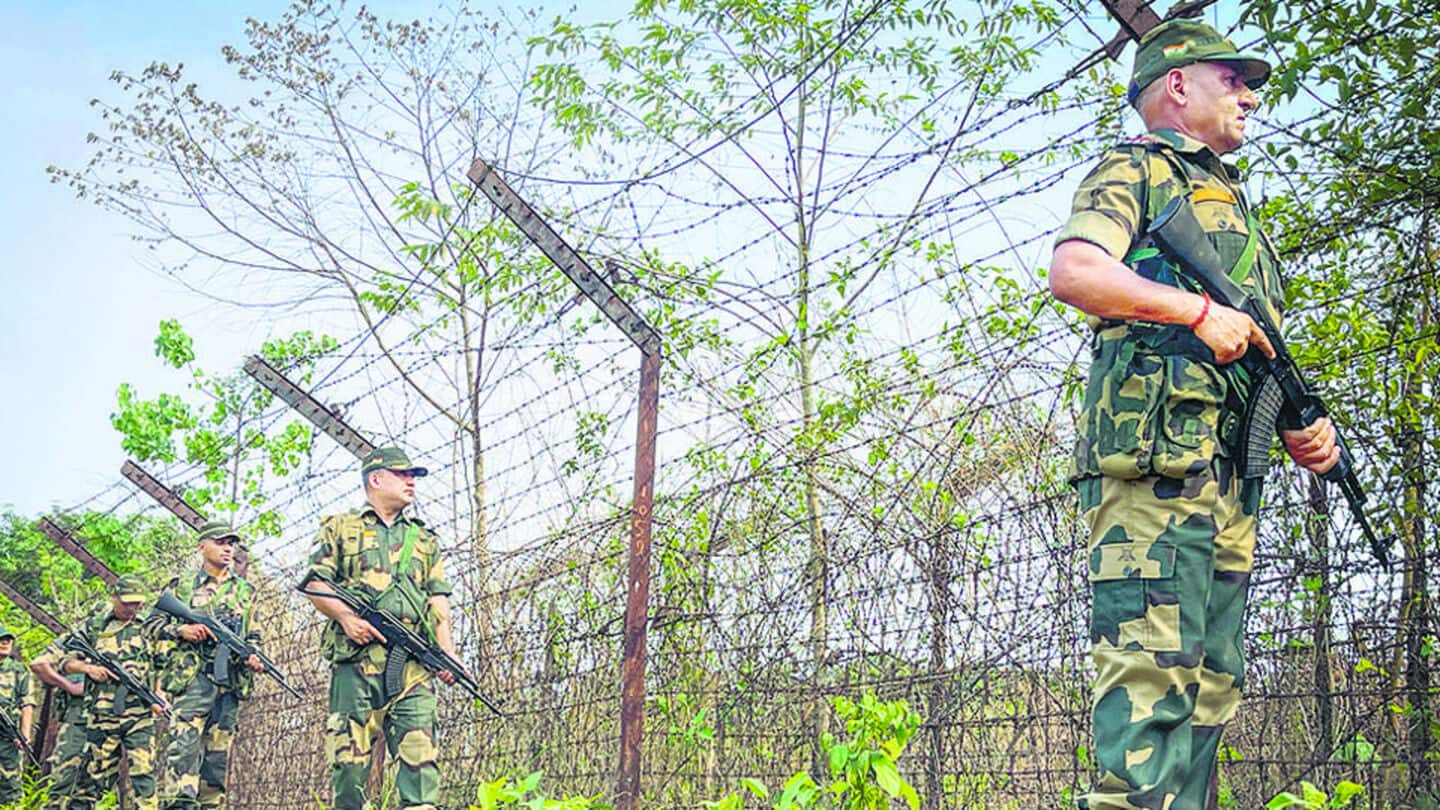
Has Pakistan dug tunnels underneath LoC? Report says Army investigating
What's the story
Pakistan is suspected of having built a network of deep underground tunnels along the Line of Control (LoC) with India, reportedly to enable the infiltration of terrorists into Indian territory and possibly even to deploy troops.
According to the Hindustan Times, the Border Security Force (BSF) and the Indian Army have been asked to check on the veracity of such claims after the Pahalgam terror attack.
Vigilance
Security forces on alert
An unnamed officer told The Hindustan Times that they were directed "to find out if Pakistan has managed to dig very deep tunnels, under the trenches, to facilitate infiltration and even send soldiers in case of any armed conflict."
According to BSF, Army, and intelligence officials, Pakistan has stationed ex-servicemen near the border to act as first responders and help with tunneling operations on their side.
One tunnel unearthed by security forces in 2020 was 500m long and 30m deep.
Infiltration methods
Suspected infiltration routes and tactics
To mask terrorist movements, Pakistan is also believed to have allowed areas near the border to become overgrown with tall elephant grass.
A third officer stated that the tunnel extended approximately 200 meters into Pakistani territory and was outfitted with an oxygen pipe.
"While we have deployed anti-tunnel technology and carry out physical inspections along the entire border, we cannot be sure if Pakistan has dug...deep tunnels with openings on the Indian side that remain undetected," the officer said.
Past incidents
Historical instances of tunnel use for infiltration
Tunnels for infiltration aren't a new phenomenon.
Umar Farooq, nephew of Jaish-e-Mohammed chief Maulana Masood Azhar and mastermind of the 2019 Pulwama attack, had entered India via a tunnel in April 2018.
Similarly, the four attackers involved in the 2016 Nagrota camp attack had used a tunnel to enter Indian territory.
Since 2001, India has uncovered about 22 such tunnels; officials believe there are many more undiscovered.
Countermeasures
BSF's anti-tunneling operation
Following intelligence inputs alerting heightened infiltration attempts, the BSF launched a massive exercise earlier this year.
The purpose was to check if terrorists were using tunnels to gain entry into India.
During the exercise along a 33km stretch of the International Border with Pakistan, anti-tunneling trenches were dug across 25km to check underground infiltration.
Attack investigation
Investigation into Pahalgam attack links to Pakistan
Hashim Musa, the Pakistani terrorist who masterminded the Pahalgam attack, was reportedly a para-commando with Pakistan's special forces. He is now a key operative with the Pakistan-based terror outfit Lashkar-e-Taiba (LeT).
Investigations have established the direct involvement of the Pakistani Army and ISI in this attack, strengthening India's claims of cross-border links to the massacre.
Musa's military background was revealed during the interrogation of 15 Kashmiri overground workers suspected of assisting the Pakistani attackers in logistics and reconnaissance.